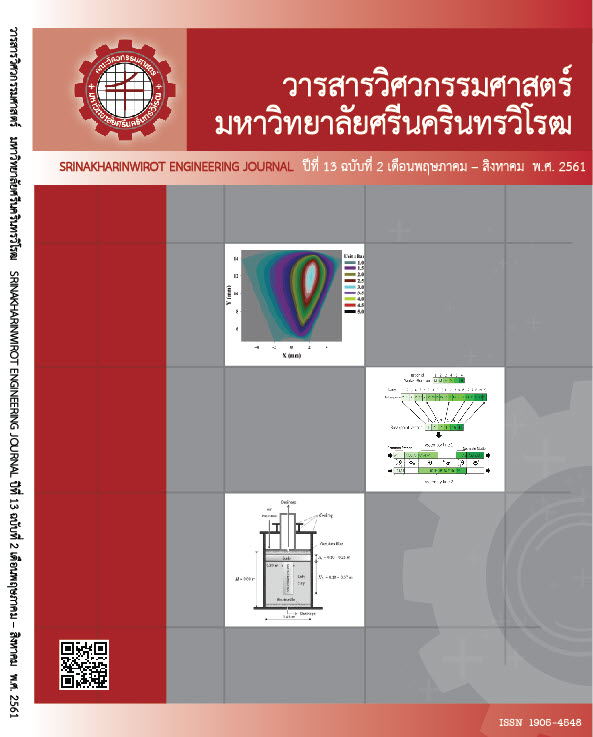Studying College Lifestyles Affected by ICT
Main Article Content
Abstract
This research aims to study the college lifestyles such as behaviors and the factors that affect the use of Information and Communications Technology (ICT) in the classes of undergraduates, postgraduates, doctoral students and faculties at King Mongkut's University of Technology Thonburi. The data were taken from 1023 research participants. A conceptual framework used in this research is Technology Acceptance Model (TAM). The instruments are questionnaires, and a 5 rating scale check-list survey. The statistical analyses were Percentage, Mean, Standard Deviation and Correlation coefficient of Person (r). The results suggest that Perceived Usefulness, Perceived Ease of Use, Attitude toward the Use of ICT, Behavior Intention to Use, and Actual System Use have an effect on the ICT behaviors of undergraduates, postgraduates, doctoral students and faculties. The results can be useful for those involved with the use of ICT in classrooms, and the development of ICT for learning which can be beneficial to both the students and the professors.
Article Details
Copyright belongs to Srinakharinwirot University Engineering Journal
References
[2] Ministry of Information and Communication Technology (Ministry of Digital Economy & Society), 2558, Digital Economy & Society Development Plan 2016-2020. [Online]. Available: https://www.digitalthailand.in.th/ digital-economy
[3] Ministry of Information and Communication Technology (Ministry of Digital Economy & Society), Digital Thailand 6 strategies [Online]. Available: https://www.itu.int/en/ITU-D/Regional-Presence/AsiaPacific/Documents/Events/2016/Apr-Digital2016/S2_Present_Pansak_Siriru chatapong.pdf
[4] F. D. Davis, “Perceived Usefulness, Perceived ease of use, and User Acceptance of Information Technology.” MIS Quarterly, vol. 13, no.3, pp. 319-339, September 1989.
[5] Cronbach, Lee J., “Essentials of psychological testing,” Harper and Row, New York: London, 1970.
[6] Timothy Teo, “Efficiency of the technology acceptance model to explain pre-service teachers’ intention to use technology: A Turkish study,” Campus-Wide Information Systems, vol. 28, no. 2, pp. 93-101, 2011.
[7] F. D. Davis, R. P. Bagozzi, & P. R. Warshaw, “User acceptance of computer technology: A comparison of two theoretical models,” Management Science, vol. 35, no. 8, pp. 982-1003, August 1989.
[8] Andrew Burton-Jones, Geoffrey S. Hubona, “The mediation of external variables in the technology acceptance model,” Information & Management, vol. 43, Issue 6, pp. 706-717, September 2006.
[9] Ajzen & Fishbein, “Understanding attitudes and predicting social behavior,” Englewood Cliffs, N.J.: Prentice-Hall, 1980.
[10] Napaporn Chatmaneerung. A study of teaching and learning acceptance of e-learning for teacher and undergraduated students Kasesart University, Kamphaeng Saen Campus. Vol. 5, No. 2., pp. 388-389, 2011.


